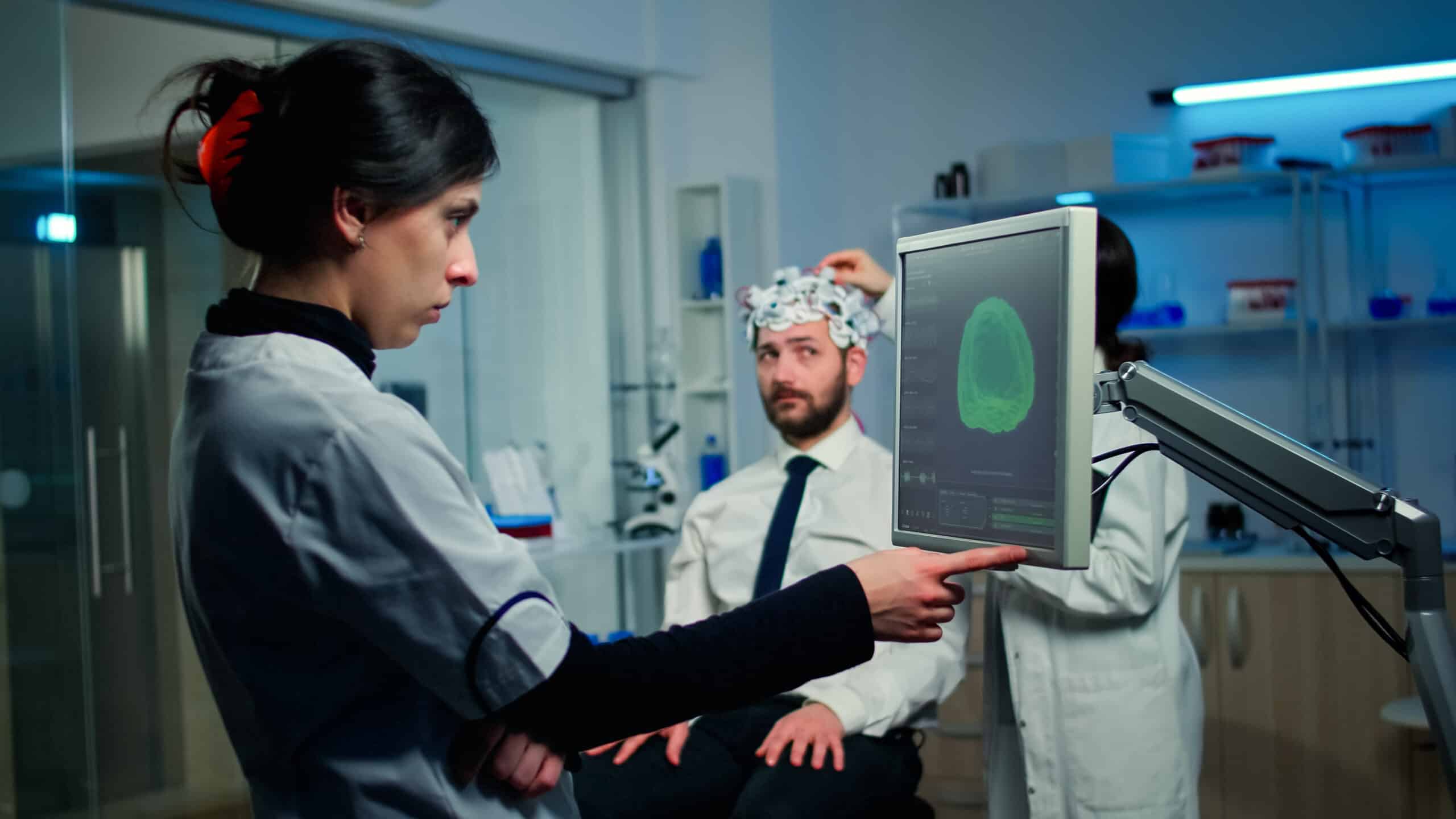AI for clinical workflows has emerged as a transformative force, reshaping how care is delivered.
AI for clinical workflows integrates artificial intelligence technologies into the day-to-day operations of healthcare providers, streamlining processes, reducing administrative burden, and ultimately improving patient care.
According to a recent report by the Healthcare Information and Management Systems Society (HIMSS), healthcare organizations implementing AI-powered clinical workflow solutions have seen a remarkable 37% increase in operational efficiency and a 29% reduction in clinician burnout rates.
As healthcare systems worldwide continue to face challenges such as staffing shortages, increasing patient volumes, and complex regulatory requirements, the strategic implementation of AI for clinical workflows offers a promising path forward.
Consequently, the use of data to support healthcare organizational workflow has become essential for institutions seeking to maintain a competitive advantage while delivering high-quality care.
What Are Clinical Workflows and Why They Matter in Healthcare
AI for clinical workflows represents the sequence of physical and mental tasks performed by various healthcare workers within and between environments to deliver patient care.
These workflows encompass everything from patient intake and assessment to diagnosis, treatment planning, medication administration, and follow-up care.
Moreover, these complex processes involve numerous stakeholders, including physicians, nurses, technicians, administrative staff, and patients themselves.
The efficiency and effectiveness of clinician workflows directly impact healthcare outcomes, patient satisfaction, and provider well-being. Suboptimal AI for clinical workflows can lead to:
- Delayed diagnoses and treatments
- Increased medical errors
- Provider burnout and dissatisfaction
- Higher operational costs
- Reduced patient throughput
- Diminished quality of care
In contrast, optimized clinical workflows supported by AI technologies can dramatically transform healthcare delivery by reducing cognitive load on clinicians, minimizing redundancies, and ensuring crucial information is available at the point of care.
Clinical workflow optimization has thus become a strategic priority for forward-thinking healthcare organizations seeking to enhance both operational efficiency and clinical outcomes.

The Role of AI for Clinical Workflows in Modern Healthcare
AI in clinical workflows represents a paradigm shift in how healthcare systems operate.
Unlike traditional healthcare IT solutions that simply digitize existing processes, AI-powered systems actively learn from data patterns, adapt to changing conditions, and provide intelligent assistance to human providers.
According to the Mayo Clinic‘s Center for Digital Health, healthcare organizations implementing AI for clinical workflows have experienced a 42% reduction in administrative tasks for physicians, allowing them to spend an additional 3.2 hours per week on direct patient care.
The fundamental capabilities that make AI for clinical workflows so powerful include:
- Pattern recognition and predictive analytics: AI systems can identify subtle patterns within vast amounts of clinical data that might escape human detection, enabling early intervention and preventive care.
- Natural language processing (NLP): Advanced NLP allows AI to understand and generate human language, facilitating documentation, data extraction from unstructured notes, and real-time clinical summarization.
- Computer vision: AI can analyze medical images, identify anomalies, and assist radiologists and other specialists in diagnostic processes.
- Process automation: Routine administrative and clinical tasks can be automated with AI for clinical workflows, freeing healthcare professionals to focus on complex decision-making and patient interaction.
- Continuous learning: AI systems improve over time as they process more data, allowing clinical workflows to become increasingly efficient and effective.
Workflow automation in healthcare, powered by these AI capabilities, is fundamentally changing how healthcare teams collaborate, communicate, and deliver care.
How Healthcare Providers Use AI for Clinical Workflow Optimization
Healthcare providers across the spectrum are implementing AI for clinical workflows to address specific operational and clinical challenges. Moreover, these real-world applications demonstrate the practical value of AI in transforming healthcare delivery.
Real-world use cases and strategies
By forecasting patient volume, acuity, and potential complications, healthcare providers can proactively allocate staff, equipment, and supplies.
Additionally, these AI for clinical workflows aim to improve patient flow, reduce wait times, and ensure that the right resources are available at the right time, ultimately enhancing the efficiency and effectiveness of healthcare delivery.
- Predictive Triage and Resource Allocation
Massachusetts General Hospital implemented a triage system of AI for clinical workflows that analyzes incoming patient data to predict acuity levels, required resources, and optimal care pathways.
Lastly, this system reduced emergency department wait times and improved appropriate resource allocation.
- Intelligent Scheduling and Staff Management
Providence Health System deployed an AI for clinical workflows that optimizes clinician scheduling based on historical patient volume data, provider expertise, and anticipated care needs.
Overall, this implementation resulted in a reduction in overtime costs and improved staff satisfaction scores.
- Automated Prior Authorization
Intermountain Healthcare integrated AI for clinical workflows to streamline the prior authorization process. The system extracts relevant clinical information from electronic health records, matches it to payer requirements, and submits authorization requests automatically.
As a result, this reduced prior authorization processing time from an average of 72 hours to just 5.4 hours.
- Smart Care Coordination
Kaiser Permanente implemented an AI-powered care coordination platform that identifies patients at risk for care gaps or complications and automatically triggers appropriate interventions.
This system of AI for clinical workflows achieved a significant improvement in post-discharge follow-up compliance and a reduction in 30-day readmissions. Clinical workflow optimization strategies consistently showing success include:
- Firstly, starting with high-volume, routine processes with clearly defined outcomes
- Secondly, ensuring robust data integration across systems
- Moreover, involving frontline clinicians in solution design and implementation
- Measuring both process metrics and outcome improvements
- Lastly, adopting continuous improvement approaches to refine AI algorithms over time
Using AI Agents to Enhance Clinical Workflows
AI agents, specialized AI for clinical workflows designed to perform specific functions within clinical environments, are revolutionizing healthcare delivery across multiple domains. These intelligent assistants work alongside human providers to enhance efficiency, accuracy, and patient experience.
AI for Clinical Documentation and Note-Taking
Clinical documentation represents one of the most significant administrative burdens for healthcare providers, with physicians spending up to two hours on paperwork for every hour of direct patient care.
Additionally, AI for clinical workflows has transformed this landscape through ambient clinical intelligence solutions that:
- Automatically capture and transcribe patient-provider conversations
- Extract relevant medical information from natural dialogue
- Structure data according to medical documentation standards
- Generate draft clinical notes for provider review and finalization
AI for Clinical Decision Support Systems
At Stanford Health Care, the implementation of AI-powered clinical decision support reduced diagnostic errors and improved guideline adherence, demonstrating the significant impact of AI for clinical workflows on quality of care.
Correspondingly, clinical decision support systems enhanced by AI provide real-time, contextual guidance to healthcare providers at the point of care. These systems leverage AI for clinical workflows to:
- Firstly, analyze patient data against evidence-based guidelines
- Secondly, alert providers to potential drug interactions or contraindications
- Following that, suggest appropriate diagnostic tests based on presenting symptoms
- Also, recommend treatment protocols tailored to individual patient factors
- Lastly, AI for clinical workflows flags possible diagnoses that might otherwise be overlooked
AI-Driven Patient Flow Management
Efficient patient flow is essential for healthcare delivery, particularly in high-volume settings such as emergency departments and outpatient clinics. AI for clinical workflows optimizes patient movement through healthcare facilities by:
- Firstly, predicting patient volumes and acuity levels
- Secondly, dynamically allocating clinical resources based on real-time demand
- Thirdly, identifying potential bottlenecks before they impact patient care
- Also, optimizing room turnover and equipment utilization
- Finally, coordinating multiple care team members across departments
Enhancing Patient Engagement with AI for Clinical Workflows
Patient engagement represents a crucial component of effective healthcare delivery. AI in clinical workflows extends beyond provider-facing applications to enhance how patients interact with the healthcare system through:
- Firstly, personalized digital front doors that guide patients to appropriate care
- Secondly, conversational AI that answers questions and provides education
- Thirdly, intelligent symptom checkers that direct patients to appropriate services
- Remote monitoring systems that analyze patient-generated data
- Lastly, smart scheduling that accommodates patient preferences and needs
Using AI to Improve Patient Outcomes Through Smarter Workflows
A multi-center study of hospitals implementing comprehensive AI for clinical workflows found a reduction in complications, a decrease in hospital-acquired conditions, and an improvement in patient-reported outcome measures.
The ultimate goal of AI for clinical workflows is to improve patient outcomes. Advanced AI systems are achieving this objective by:
- Firstly, identifying high-risk patients for proactive intervention
- Secondly, ensuring consistent application of evidence-based protocols
- Thirdly, monitoring treatment response and suggesting adjustments
- Coordinating complex care across multiple providers
- Lastly, preventing adverse events through predictive analytics
AI in Clinical Trials and Research Workflows
The use of data to support healthcare organizational workflow in research settings has reduced trial recruitment times and lowered data processing costs.
Beyond direct patient care, AI for clinical workflows is transforming how healthcare organizations conduct research and clinical trials. Key applications include:
- Firstly, identifying suitable trial participants through EHR data analysis
- Secondly, monitoring protocol adherence and data quality in real-time
- Also, detecting safety signals earlier in the research process
- Automating routine data collection and reporting
- Finally, accelerating insights through advanced analytics

Additional Applications of AI for Clinical Workflows Across Healthcare
The potential applications of AI in clinical workflows extend across virtually every aspect of healthcare delivery. These AI-powered tools can streamline processes from patient scheduling and documentation to diagnostics and treatment planning. Additional innovative implementations include:
Supply Chain and Inventory Management
AI systems analyze usage patterns, predict supply needs, and optimize inventory levels, reducing waste and ensuring critical supplies are available when needed.
Healthcare systems implementing AI for clinical workflows and supply chain management have reduced supply costs while decreasing stockout incidents.
Revenue Cycle Management
AI for clinical workflows streamlines billing and coding processes. RCM automatically codes encounters based on clinical documentation. Furthermore, they identify missing charges or documentation. Ultimately, they optimize collections processes based on payer patterns
Organizations implementing AI-powered revenue cycle management have increased clean claim rates and reduced days in accounts receivable.
Quality and Safety Monitoring
Continuous monitoring of healthcare quality and safety is paramount for delivering optimal patient care and preventing adverse events. AI in clinical workflows plays a crucial role in this by analyzing vast amounts of clinical data to identify patterns, predict risks, and flag potential issues in real-time.
AI for clinical workflows continuously monitors clinical data to identify potential quality or safety issues, such as:
- Firstly, patterns suggesting hospital-acquired infections
- Secondly, medication administration discrepancies
- Falls risk factors
- Furthermore, consider clinical deterioration indicators
- Lastly, check for protocol compliance gaps
Proactive identification of these issues has enabled healthcare organizations to reduce serious safety events and improve compliance with quality measures.
Telehealth Integration
AI for clinical workflows enhances telehealth delivery.
This enables proactive interventions, facilitates continuous improvement initiatives, and fosters a culture of safety within healthcare organizations, ultimately leading to enhanced patient well-being and reduced healthcare costs.
This integrated approach has improved telehealth provider efficiency by and increased patient satisfaction with virtual care experiences.
Conclusion
AI for clinical workflows represents one of the most promising developments in modern healthcare, offering solutions to longstanding challenges of efficiency, quality, and provider burnout.
As healthcare organizations continue to navigate complex regulatory requirements, shifting payment models, and evolving patient expectations, AI in clinical workflows provides a powerful set of tools to optimize operations and improve outcomes.
Looking ahead, we can expect AI in clinical workflows to become increasingly sophisticated, with greater integration across care settings, more personalized recommendations, and enhanced predictive capabilities.
Organizations that strategically invest in these technologies and develop the operational expertise to implement them effectively will be well-positioned to deliver exceptional care in an increasingly complex healthcare environment.
Feel this powerful convergence with Murphi, where we make AI for clinical workflows not merely a technological innovation but a fundamental transformation in how healthcare is delivered.
FAQs
1. What is AI for clinical workflows?
The workflow of AI in healthcare typically involves data collection from various sources (EHRs, medical devices, imaging systems), data preprocessing and normalization, application of AI algorithms to analyze the data, generation of insights or recommendations, and integration of those outputs into clinical workflows through user interfaces or system automation.
2. How is AI used in clinical practice?
AI is used in clinical practice across numerous applications, including clinical decision support (suggesting diagnoses or treatments), documentation assistance (automated note generation), image analysis (detecting abnormalities in radiology or pathology), predictive analytics (identifying patients at risk for deterioration), and process automation (streamlining administrative tasks).
3. What is AI workflow automation?
AI workflow automation refers to the use of artificial intelligence technologies to streamline, optimize, and automate clinical and administrative processes in healthcare. Unlike simple rule-based automation, AI workflow automation adapts to changing conditions, learns from patterns in data, and makes contextual recommendations or decisions.
4. What is the difference between an AI workflow and an AI agent?
An AI workflow refers to the entire process or sequence of tasks that are enhanced or automated by artificial intelligence, often spanning multiple systems and stakeholders. An AI agent, conversely, is a specific AI-powered software entity designed to perform particular functions autonomously within that workflow, such as a documentation assistant or a diagnostic helper.
5. What is an example of a clinical workflow?
A common example of a clinical workflow is the emergency department triage and treatment process. This workflow begins when a patient arrives at the ED and includes registration, initial assessment by a triage nurse, assignment of acuity level, room placement, physician evaluation, diagnostic testing, treatment administration, disposition decision (admit, discharge, transfer), and documentation.
6. What is clinical workflow integration?
Clinical workflow integration refers to the seamless incorporation of new technologies, including AI solutions, into existing clinical processes to enhance efficiency and effectiveness without disrupting patient care.
7. How does AI impact healthcare provider satisfaction?
AI for clinical workflows significantly impacts healthcare provider satisfaction by reducing administrative burden, preventing burnout, and allowing clinicians to focus on meaningful patient interactions. Studies show that physicians using well-designed AI tools report higher job satisfaction, improved work-life balance, and greater professional fulfillment.
 Watch 2 min video
Watch 2 min video 
